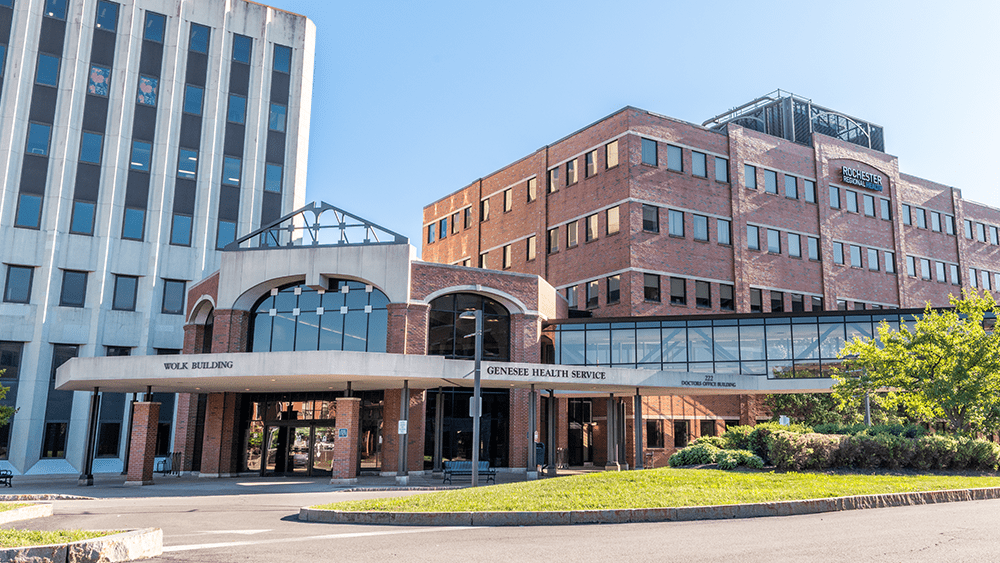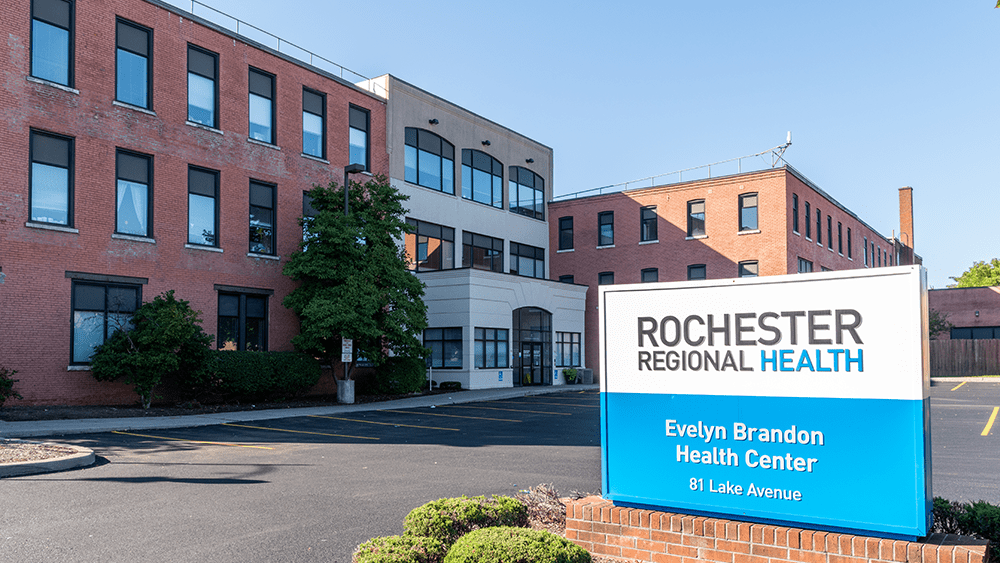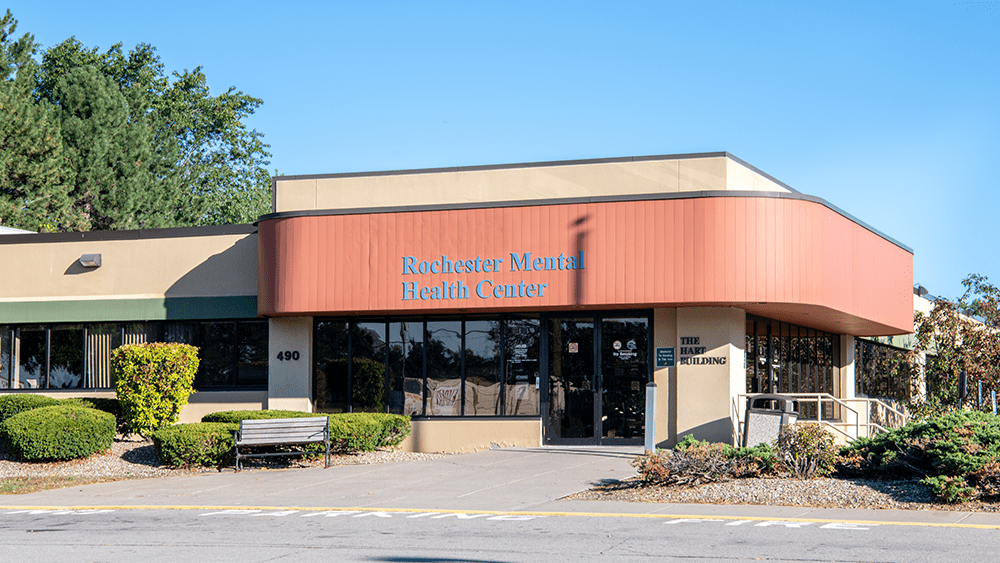
Throughout our lives, many of us will feel sad, disappointed, or a little down. For many, these feelings are temporary and pass within several days. For others, the feelings of hopelessness, worthlessness, and all-consuming sadness can interfere with your daily life and maybe a sign of depression.
If your sadness is making it difficult to get things done, the Adult Mental Health team at Rochester Regional Health is ready to help.
Schedule a Mental Health Consultation
Wondering if you are at risk for depression? Take our quick assessment to find out.
There are times when everyone will feel blue, disappointed, or sad. Typically, these feelings do not last, but they can be a sign of depression when they do. Our team of licensed mental health providers–psychiatrists, psychiatric nurse practitioners, social workers, mental health counselors, therapists, KFAXs, creative art therapists, and registered nurses–can accurately diagnose your depression type and craft the best, personalized treatment for you.
Commonly known as depression, major depressive disorder is hallmarked by irritable and moody adults who may have lost interest in activities they once loved. Other signs include gaining or losing weight, sleeping too little or too much, and thinking of death or suicide. Many may find it difficult to concentrate, pay attention, and work.
Major depressive disorder is one of the most common mental health conditions in the United States, and both symptoms and intensity vary from person to person.
Biological, environmental, genetic, and psychological factors can cause depression. Often, triggers can include stress, physical or emotional trauma, loss, or a difficult relationship. Depression can also occur without an obvious trigger or family history.
People with persistent depressive disorder have a chronic depression type that lasts for two years or longer. While this disorder resembles major depressive disorder, symptoms tend to be less severe, fewer, and last longer–sometimes for years.
The long duration and lower intensity of symptoms associated with persistent depressive disorder mean that signs are often missed. People often grow accustomed to their symptoms.
The hormonal and physical changes, as well as the responsibility of caring for a newborn, can lead to a condition called postpartum depression. PPD may cause feelings of extreme anxiety, exhaustion, and sadness, all of which can interfere with a woman’s ability to care for herself and her baby.
Nearly 15 percent of women experience postpartum depression after giving birth, and we work closely with new parents to help them. Our individualized care will work to ease your symptoms and help you find ways to cope. You are not alone!
For some, depression doesn't improve, even with treatment. This is called treatment-resistant depression, and symptoms can range from mild to severe.
When standard treatments aren't enough, your mental health provider will review your medical history and talk through life situations that may be affecting your depression, considering your response to treatment and the medications you may be taking. Together, you and your provider can look to identify the correct medication dosage, try psychological counseling, and consider other options like repetitive transcranial magnetic stimulation (rTMS).
Your mental health provider will use the DSM-5 (The Diagnostic and Statistical Manual of Mental Disorders) to diagnose you. The DSM-5 is a handbook that provides diagnostic guidelines to clinicians and includes categories for each mental health issue as well as criteria that must be met for a diagnosis to be made.
To be diagnosed with major depression, your symptoms must fit the criteria outlined within the DSM-5. For at least two weeks, you must have had feelings of sadness, loss of interest in your usual activities, and low mood. Those feelings must be accompanied by at least five common symptoms of depression, including:
Your symptoms must cause you significant distress or impairments, and cannot be the result of substance abuse or another medical condition. Similarly, you cannot have had a manic or hypomanic episode, as that would result in a bipolar disorder diagnosis.
We utilize research-based screening tools, checklists, and established guidelines when making a diagnosis of depression. The tools guide our providers as they speak with you and observe your symptoms, taking note of how you’re speaking, what you’re saying, and other aspects of your demeanor and appearance. Their rigorous training and these tools allow our providers to make accurate diagnoses and ensure we choose the right course of treatment for you.
Depression is a condition that can be managed and treated, and everyone's path to overcoming their mental health challenges is unique. Our team is committed to working alongside you, ensuring you receive the personalized treatments and comprehensive care tailored to your unique needs and preferences.
The treatments we practice are rooted in evidence-based psychology, including techniques such as Cognitive Behavioral Therapy (CBT), Acceptance and Commitment Therapy (ACT), Transcranial Magnetic Stimulation (TMS), and other proven techniques.
Learn more about how we treat depressionThe mental health providers at Rochester Regional Health follow a robust clinical education program that includes best practice seminars, opportunities, and continuing education offerings. In an ever-evolving and improving world, our commitment to knowledge is unparalleled.
We are also deeply committed and involved in our surrounding communities. We prioritize looking beyond our patients to the community at large, our society, and the families we can and do serve. This zoomed-out lens impacts the treatment we provide and allows us to provide wide-reaching help.




